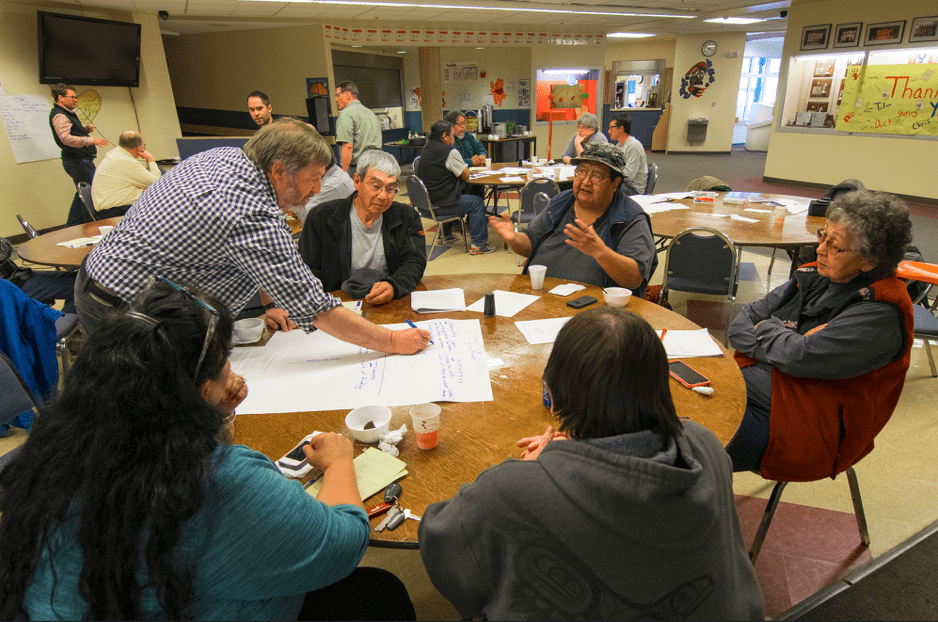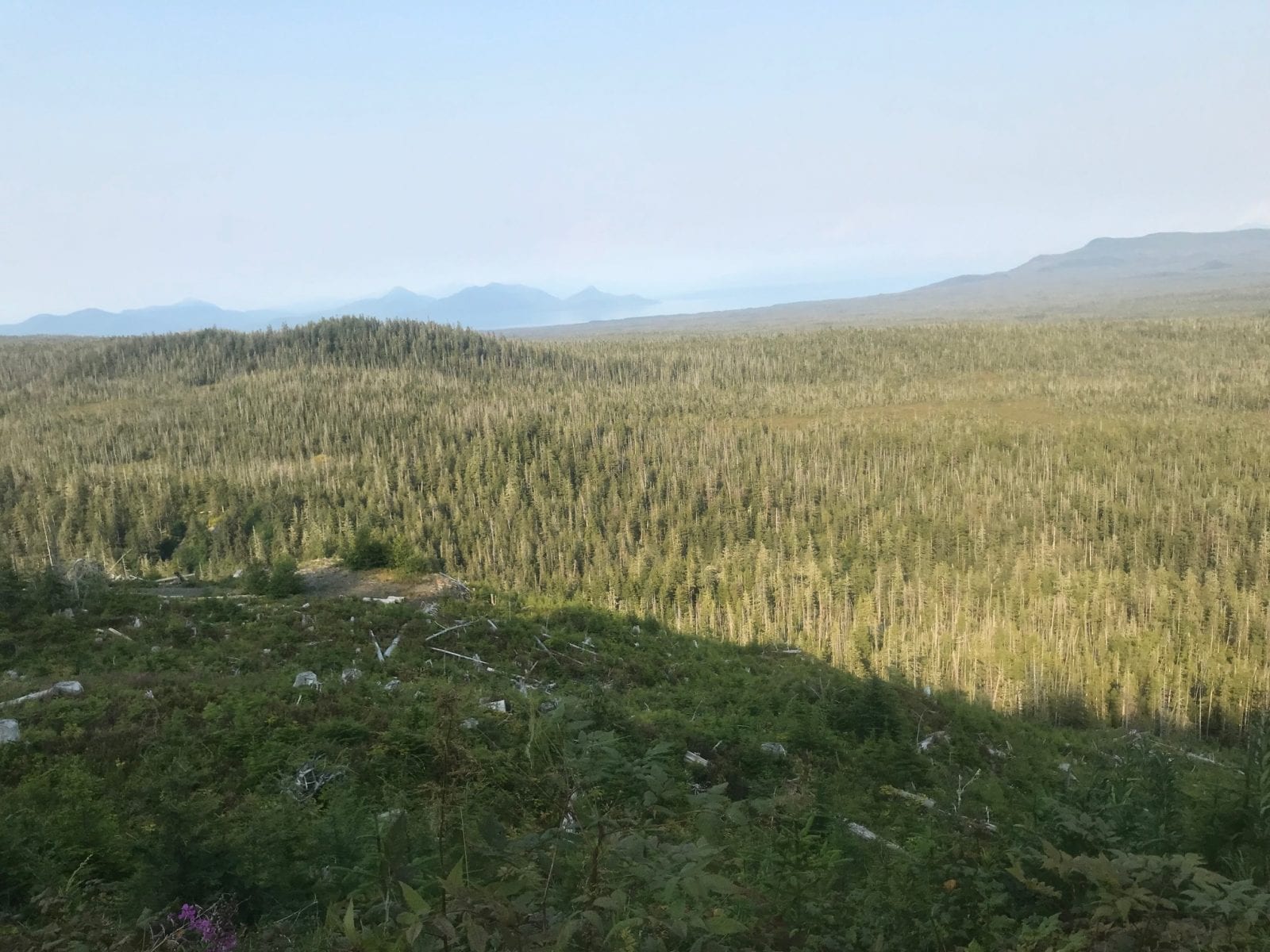Working Together for Wood Heat Energy
In June, Kake took one giant step toward energy independence with the delivery of the final engineering plans and financial analysis for a biomass district heating system designed by the Oregon firm, Wisewood Energy – a firm with deep experience in Southeast and many operational plants across the region.
Like most remote Southeast villages, Kake pays dearly for the tens of thousands of gallons of non-renewable heating oil they import each year to heat the Kake School, Senior Center, Health Center, Community Center and other public buildings – all while surrounded by thousands of acres of renewable biomass resources in the form of waste wood from second growth thinning and timber operations.

